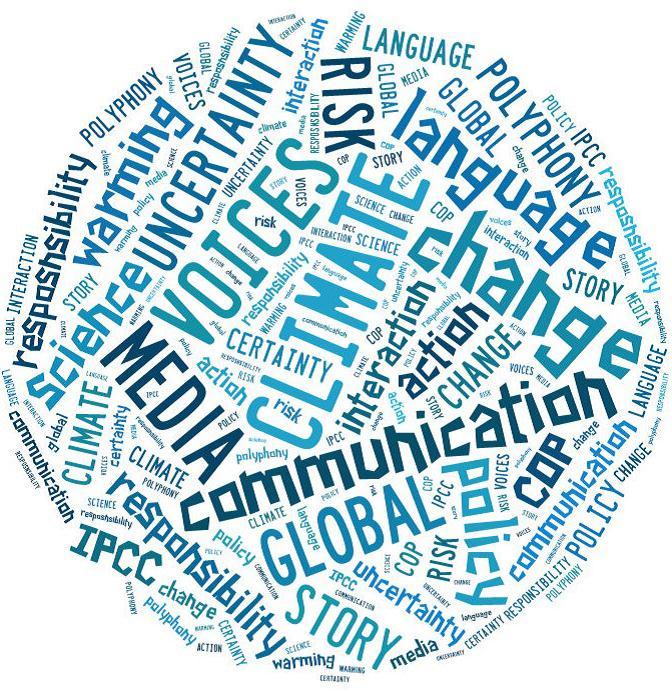The Human Side of Climate Change
LINGCLIM arranges a multidisciplinary conference on climate change

Hovedinnhold
Over the last two decades, the human side of climate change has attracted increasing attention from scholars from the social sciences and humanities – developing into a prolific, rich and truly multidisciplinary effort, with contributions from fields as varied as media and communication science, political science, sociology, psychology, cultural studies, computational science, discourse analysis and linguistics. The kinds of data sources and materials that have been studied are as manifold as the different disciplinary approaches, ranging from the analysis of textual materials – such as scientific papers, policy reports, newspaper articles, blogs and other social media – to methodological approaches such as experiments and opinion surveys.
At this conference, the LINGCLIM project focuses on the current state of the research field. More specifically, we ask the following questions:
What have been the contributions of the multiple research approaches
1) to the individual disciplines and to overarching interdisciplinary research
2) to knowledge about the many facets of the human side of climate change, and
3) to society and policymakers.
In addition to paper presentations, including some by LINGCLIM members, we have invited the following leading scholars from various disciplines who will present their recent research with a focus on one or several of the questions above:
Eystein Jansen: Professor, Department of Earth Science/Bjerknes Centre for Climate Research, University of Bergen, Norway: “Uncertainties, risks and opportunities as viewed from recent climate research”
Michael D. Jones: Assistant Professor, School of Public Policy, Oregon State University, US: “Culture and Climate Change: A Storied Examination of Norwegian Public Opinion”
Irene Lorenzoni: Dr., Senior Lecturer, School of Environmental Sciences, University of East Anglia, UK: “Reflecting on the ‘unusual’: climate change narratives in decision making about the future”
Brigitte Nerlich: Professor, School of Sociology and Social Policy, University of Nottingham, UK: “Metaphors in climate change discourse”
Matthew Nisbet: Associate Professor of Communication, Northeastern University, Boston, Massachusetts, US: “Disruptive Ideas: Public Intellectuals, the Media, and Discourses about Climate Change”
Nick Pidgeon: Professor, School of Psychology, Cardiff University, UK: “Public Perceptions of Climate Change: Key Trends and Emerging Issues”
Mike S. Schäfer: Professor, Institute of Mass Communication and Media Research, University of Zürich, Switzerland: “Climate Change – A Global Problem in a Global Public Sphere?”
Élodie Vargas: Ass Prefessor, Université Stendhal, Grenoble 3, France: "Climate Change: Discourses and representations in advertisements"
Mike Hulme, Professor of Climate and Culture, Department of Geography, School of Social Science & Public Policy, King’s College London
Practical information
All interested in research on “the human side” of climate change are invited to participate and to submit a paper proposal, which will be assessed by the conference organisers. Paper proposal including name, affiliation, department and an abstract of 200–300 words should be submited by JUNE 1 st.
Please use this template.
Information on whether your proposed paper has been accepted will be given by July 1st.
The deadline for registering for the conference is October 4th.
Please register here
Conference participation is free, but participants must arrange and pay for their own travel and accommodation.
There will be a fee for meals.
See also the Sociolinguistic Events Calender
